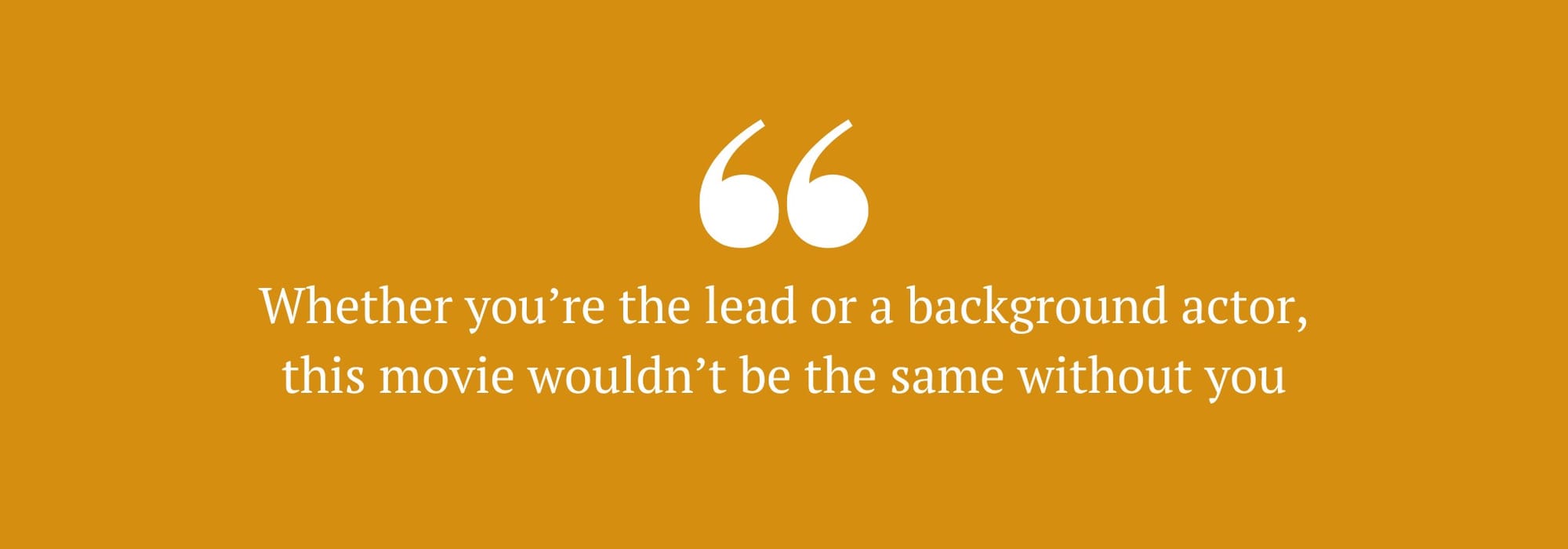We’re used to being the main character in the movie of our lives, but what happens when we realise we’re a background actor in others’?
Have you ever found yourself in a public space, wondering what passing strangers are doing with their day? Perhaps you’ve made up intricate back stories for them in your head, as you imagine the rich and complex lives they’re living.
I admit, this is something I do often (usually when sitting in my local cafe between sips of mocha). Part of it is likely due to my hobby of writing fiction, but I think we all have an innate curiosity about others’ stories. We can so easily become wrapped up in the drama of our own lives, it can be a relief sometimes to realise we’re nothing more than a passing stranger to others.
Recently, I discovered a word that has been ascribed to this sensation: ‘sonder’. Defined as: “Sonder – noun. The realisation that each random passerby is living a life as vivid and complex as your own.” The concept revolves around the idea that there could be “an epic story that continues invisibly around you like an anthill sprawling deep underground, with elaborate passageways to thousands of other lives that you’ll never know existed, in which you might appear only once, as an extra sipping coffee in the background, as a blur of traffic passing on the highway, as a lighted window at dusk.”
Now, you won’t find this definition in a standard dictionary, instead, you’ll find it in the Dictionary of Obscure Sorrows, penned by Minnesota author John Koenig, who coined hundreds of words to encapsulate specific feelings we have no words for in English. Being able to put language to the way we feel can be powerful, allowing us to describe the indescribable.
Sonder gives us a word for a particular type of connection that can have a profound impact on our wellbeing. If you’ve ever experienced anxiety or depression, for example, recognising sonder could be helpful.
If your head is spinning with worries, and you’re imagining everything that could go wrong, taking a moment to be anonymous, and watch others go about their daily lives, can offer a sense of perspective. This may pull you out of your worry spiral, even if only for a brief moment. Likewise, if your mood is low and you’re feeling isolated, being in a public space and spotting sparks of sameness between you and passersby can help you revel in the tapestry of life (and your important part in it).

Sonder can also encourage compassion, as being more attuned to those you encounter, and shifting your perspective to theirs, can help you develop empathy and a sense of care. There are numerous studies on the benefits of compassion, from its positive impact on our mental health to how it improves physical health by warding off stress and loneliness, as seen in research from 2021 published in Translational Psychiatry.
This sense for encouraging connections, and countering loneliness, comes from sonder’s ability to give us the nudge we need to reach out and speak to passersby now and then. According to a study published in Social Psychological and Personality Science, those who engage in conversation with strangers actually report greater levels of life satisfaction.
So then, how can we embrace sonder in our lives a little more, and reap the benefits?
Write character notes
This is something fiction writers like to do, but it can be a fun exercise for anyone. When you’re in a public space, allow your eyes and mind to wander to those around you. Take a pen and paper, and make notes about their imagined characters. What could their name be? What might their passions be? What could they be struggling with? Let your imagination run free, and get swept up in someone else’s story for a while.
Be curious about those you interact with
Curiosity helps us engage with life more fully and, at its heart, sonder is about following that curiosity. Imagine the lives the people you pass by are living: how might they be similar to yours? How might they be different? Take an interest in others; ask your barista how their day is going, compliment the cool shoes your fellow bus passenger is wearing, and find out if the person in the park is enjoying their book as much as you did when you read it.
A small caveat here is that not everyone will be super comfortable with talking to someone they haven’t met. So, if you get a short reply or no answer, move on and know it’s nothing personal.

Question your judgements
We all hold biases and beliefs about others, even if they’re largely unconscious. These can manifest as knee-jerk judgements about what a person is like. If you notice this happening, try to gently question yourself. Is there any evidence that your judgement is right? What alternative could you imagine?
Tap into compassion
As you start to be more curious about others, and question your judgements, you may notice you feel more compassionate towards others. Try to tap into that sense of compassion with yourself, too. Ask yourself if you would treat others the way you treat yourself. Remind yourself of your place in this complex web of connections, and how important it is to take care of yourself so you can support others.
Ultimately, sonder serves as a reminder that even the briefest moments of connection hold power – a smile at a stranger, a coin tossed to a busker – and that we all have an important role to play. Whether you’re the lead or a background actor, this movie wouldn’t be the same without you.


Comments